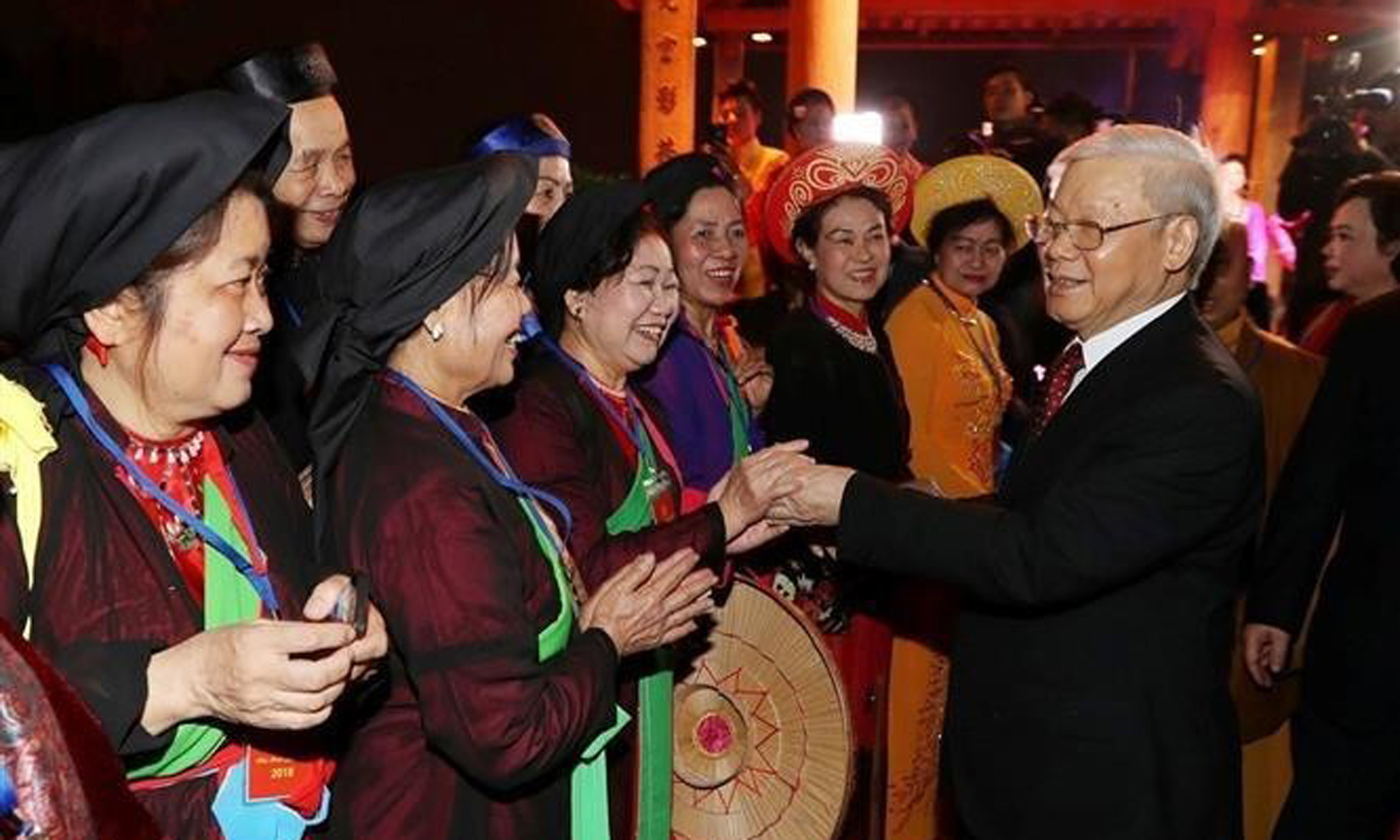Party chief's attention to culture lays foundation for Vietnam's sustainable development: official
ABO/NDO- Party General Secretary Nguyen Phu Trong has always paid great attention to cultural issues, and he has made important contributions to preserving and developing the national culture, and promoting Vietnam’s international integration, said Associate Professor, Dr. Bui Hoai Son, permanent member of the National Assembly’s Cultural and Educational Committee.
With his widespread influence, the Party chief has guided and directed the development of the cultural sector, the official said.
Highlighting the General Secretary’s love of culture, Son said it was nurtured by various factors, from his birthplace – a land where national cultural quintessence converges, and his family, to his university major of literature and his positions relating to ideology and culture at the Communist Review, a magazine of the Communist Party of Vietnam (CPV), between 1967 and 1996.
 |
| Party General Secretary Nguyen Phu Trong visits and extends New Year wishes to artists in Hanoi on February 15, 2018. (Photo: VNA). |
He then worked as Chairman of the CPV Central Committee’s Theoretical Council for 2001 – 2007, the period when the adverse impacts of the market economy and international integration on the cultural life were felt clearly, posing unprecedented issues in cultural and human building. Besides great improvements in the living conditions, various problems appeared when individualism and foreign cultures spread and traditional cultural values were eroded, negatively affecting the morality of the community and individuals. All of those problems required sound, clear cultural development orientations, according to the Associate Professor.
Against the background, General Secretary Trong, with his deep knowledge about political and cultural theory and his holding of important positions, had a crucial role to play in cultural development, Son stressed.
As a scholar with extensive and in-depth knowledge in political and cultural theory, the Party leader wrote a large number of articles and research works on Ho Chi Minh’s ideology, Party building and the national culture. According to Son, those works reflect not only the Party chief’s extensive knowledge but also his concern over national development path where traditional values should go with integration and modernity.
President Ho Chi Minh’s profound ideals on culture and traditions have strongly influenced General Secretary Trong, he continued, adding the General Secretary always advocated the preservation and promotion of traditional and revolutionary culture during his political leadership and his love of culture was demonstrated in every instruction, article and talk of him.
The official noted that the Party leader actively attended many cultural conferences and forums, as well as meetings with writers, artists and intellectuals to listen to their ideas and aspirations, thus contributing to building suitable cultural policies.
According to Son, a milestone in Vietnam’s cultural development was the national conference on cultural development in 2021. The Party leader's keynote speech at the conference sent out many messages and gave inspirations to artists and those working in cultural industries to contribute more to the national culture.
Such views of the late leader were made clearly in his book on building and developing an advanced Vietnamese culture imbued with national identity, he said, calling it a lodestar for the management work in the cultural sector in the time ahead.
The official affirmed that the Party leader always considers culture one of the important foundation of the country. The love of culture is not merely a personal preference of the Party leader but a strategy for the country’s long-term, sustainable development, Son said, stressing that General Secretary Trong is one of great men of culture of Vietnam, who have, and are laying the foundation for the comprehensive development of the country, from economy and politics to culture and society.
(Source: NDO)
 về đầu trang
về đầu trang







